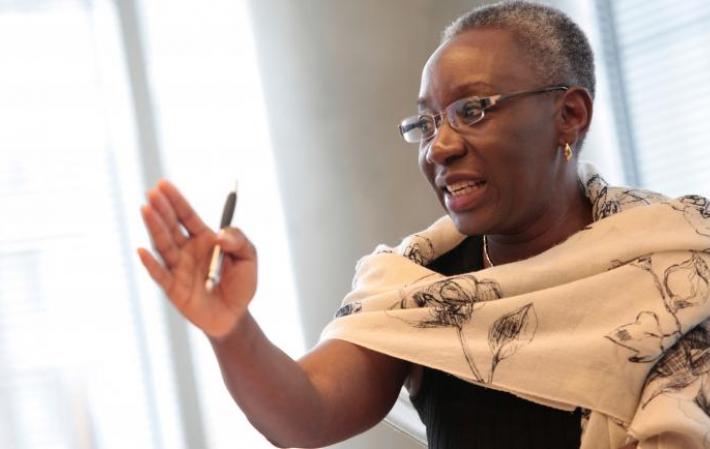
Sandra Pepera, Senior Associate and Director for NDI's Gender, Women and Democracy team.
Long before the issue of Russian disinformation became the subject of headlines in the U.S., NDI worked with partners to understand and counter efforts to manipulate information. NDI has continued to expand its in-house capacity and its external partnerships in this area through an initiative we've called INFO/tegrity, which focuses on efforts to detect, analyze, and combat disinformation online.
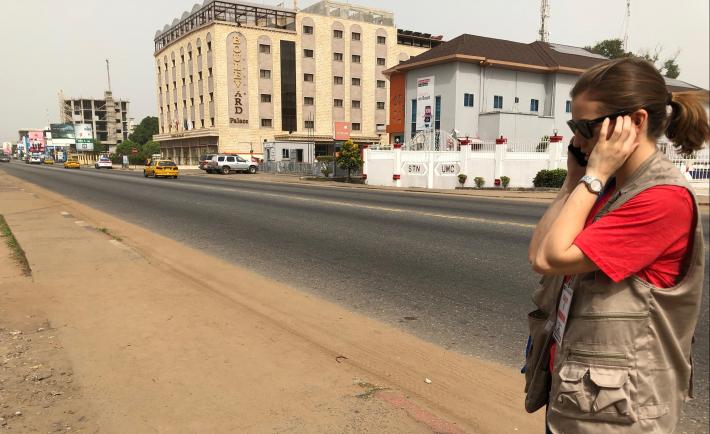
The author on Tubman Boulevard in Monrovia struggling to hear a call about logistics from fellow NDI staff while running other Election Day errands (photo credit: Madeline Wilson)
Two former presidents and a former foreign minister sat in a conference room while I searched for a hat. It sounds like the beginning of a bad joke, but it was the very real start to December 25, 2017, the eve of the Liberian presidential runoff.
As a young lawmaker in the Missouri state legislature, Senator Claire McCaskill once sought advice from a senior member about how to get a piece of legislation out of committee. He responded by asking if she had “brought her knee pads.”
In the wake of the revelations about predatory attacks on women in Hollywood, in newsrooms and in the halls of legislatures, women around the world have been stepping forward to provide #MeToo testimonies about their experience of sexual harassment.
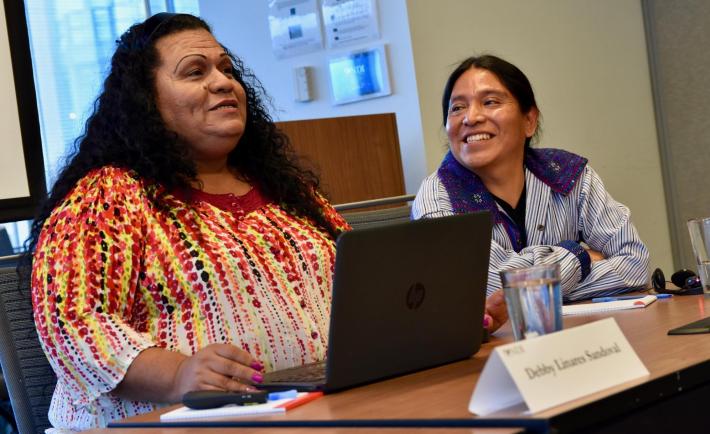
Debby Linares, during her presentation at NDI, with fellow human rights activist, Fernando Us Alvarez.
In the first week of December 2017, I had the chance to meet Debby Linares, a transgender woman and human rights activist from Guatemala, who soon became an inspiration to me on a personal level. Debby, who has been a human rights activist for the past 16 years, advocates for Lesbian, Gay, Bisexual, Transgender and Intersex (LGBTI) rights at the municipal and state level in Guatemala.
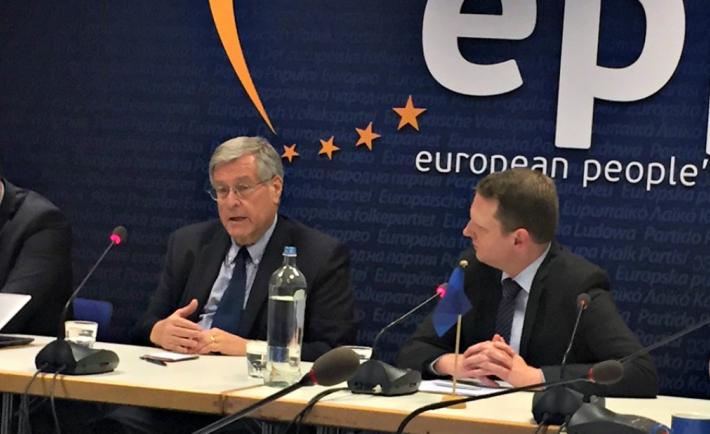
NDI President Ken Wollack addressing leaders of the EPP, ALDE and PES parties at EPP headquarters in Brussels, October 2017
NDI President Ken Wollack visited Brussels this fall to discuss how democracy is faring in Central and Eastern Europe as the region confronts heightened Kremlin involvement, democratic backsliding and rising skepticism over European integration. Among other interlocutors, Wollack met with leaders of the European People’s Party (EPP), the Alliance of Liberals and Democrats in Europe (ALDE), and the Party of European Socialists (PES), plus affiliated think tanks. NDI has affiliation with all three party groups and works with them to support political party development and reform.
The European leaders spoke of combining forces in the former Yugoslavia, Central Europe and Eastern Partnership countries to resolve ongoing partisan conflicts that harm good governance and political consensus. It’s the kind of demonstrable engagement that Europe can make at a time when many countries, both in and outside of the European Union (EU), need democracy booster shots. NDI’s in-country programs and longstanding relations with European political parties across the mainstream spectrum make the Institute a bridge between Brussels and Europe’s eastern reaches.
In its third year, DemWorks has solidified itself as one of the premier blogs on democratic development around the world. The number of visitors to the blog has expanded rapidly, with nearly 40 percent of the blog’s 186,702 unique visitors coming in 2017 alone. Our subscriber list has ballooned to upwards of 3,000 democracy lovers who have been gracious enough to let us into their inboxes (we know it can be a crowded place). Here’s our list of the most-read blog posts and series from 2017.

NDI Mexico and the National Institute for Women (Inmujeres) launch the #NotTheCost (#NoEsElCosto) campaign, among representatives of government agencies, civil society and political parties.
We hope that you’ve noticed the orange-ing of NDI’s website logo as part of our institutional contribution to the worldwide 16 Days of Activism Against Gender-Based Violence. Violence against women (VAW) is rooted in gender inequality and must be stopped. It is also one of the many barriers to women’s meaningful and active political participation that NDI’s programs work to overcome.
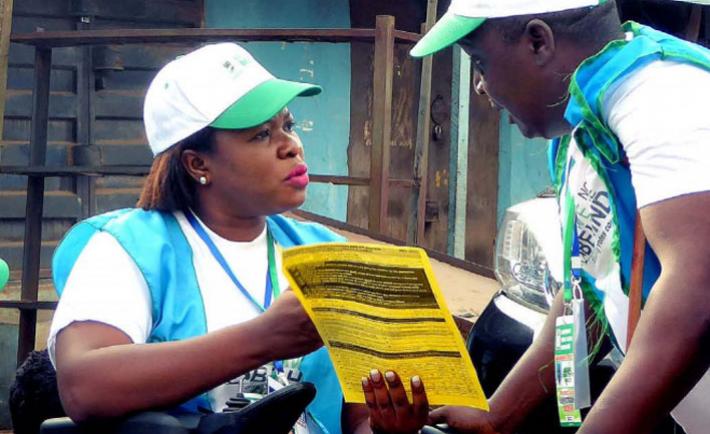
IFA's Grace Jerry (left) discusses the audit checklist with another Access Nigeria observer during an election day deployment.
In Nigeria, there is a dearth of reliable data on the number of people with disabilities, let alone the challenges they face participating in elections. In its World Report on Disability, the World Health Organization estimates that 15 percent of the world’s population lives with some form of disability. Based on this report, IFA approximates that there are 25 million Nigerians with disabilities.
For this reason, disability rights organization and NDI partner Inclusive Friends Association (IFA) audited polling unit accessibility during off-cycle gubernatorial elections in Edo (September 2016) and Ondo (November 2016) states, using a sample-based observation deployment methodology similar to parallel vote tabulation. The audits assessed the availability of handrails, ramps, braille or tactile ballots, written voting instructions and sign language interpreters. Armed with these newfound statistics, disability rights advocates such as IFA are now better equipped to make advocacy demands on decision makers to address barriers to the political participation for persons with disabilities in Nigeria.
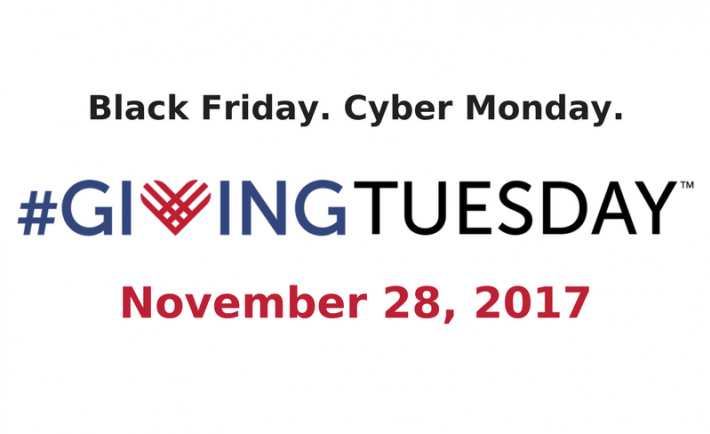
#GivingTuesday is a global day of giving that follows widely recognized shopping events -- Black Friday and Cyber Monday -- to encourage people to also donate to non-profits.
Today is #GivingTuesday, a great opportunity to encourage support for our mission of working for democracy and making democracy work. Especially in these times, our mission has never been more critical. Your gift TODAY (Tuesday, November 28) will be MATCHED DOLLAR FOR DOLLAR by the Bill and Melinda Gates Foundation. This match is only guaranteed for donations made via Facebook today.
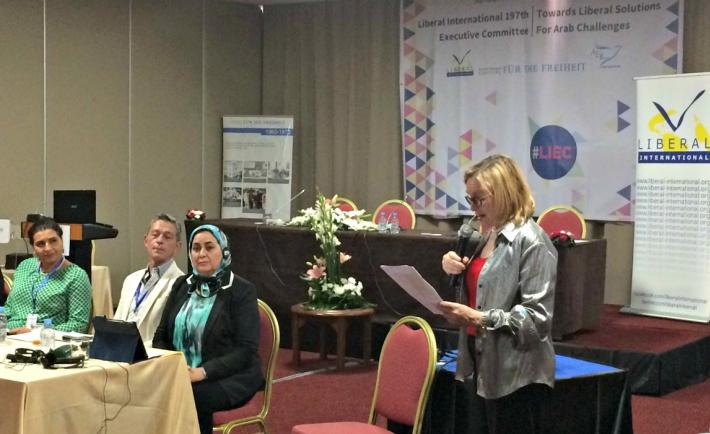
NDI and Liberal International's (LI) session "Ending Violence Against Women in Politics: Liberal Strategies and Perspectives," which was held during the 197th LI Executive Committee meeting on November 12, 2016, in Marrakesh, Morocco
When I look at my political career, I realize how much we owe to the struggles of my mother and grandmother’s generations. By the time my grandmother became an adult, she was able to vote on equal terms with men because that universal right had been introduced in 1906, making Finnish women the first in the world legally allowed to run for office. Those rights came about largely because men and women, young and old, farmers, workers, entrepreneurs, everybody was needed in the struggle for independence, which we achieved in 1917.